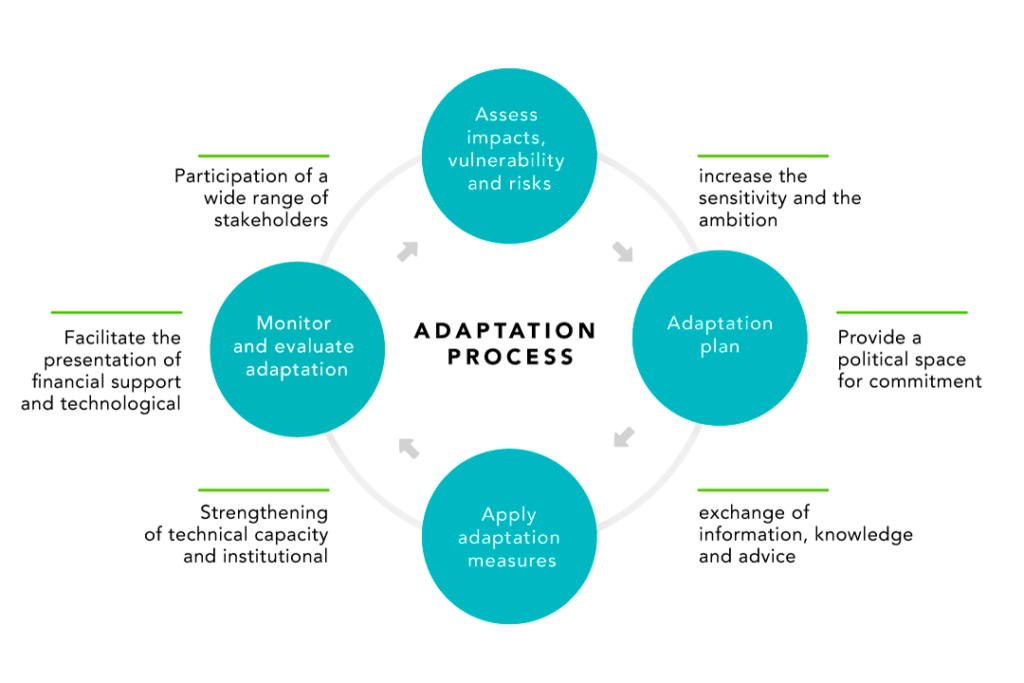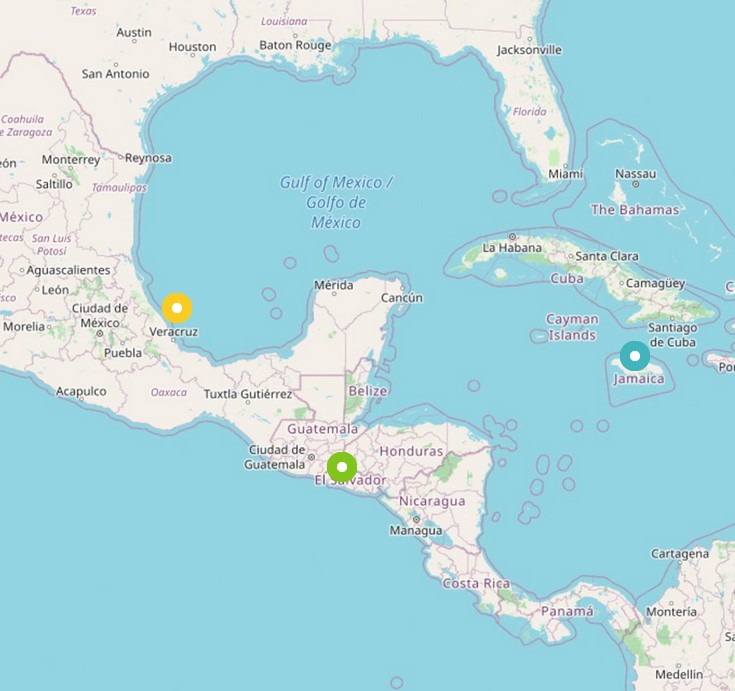What is Adaptation?
Climate Change Adaptation
According to the United Nations Framework Convention on Climate Change, adaptation refers to adjustments in ecological, social or economic systems in response to real or anticipated climatic stimuli and their effects or impacts. It refers to changes in processes, practices and structures to moderate potential damage or to take advantage of opportunities associated with climate change.
That is, countries and communities need to develop adaptation solutions and implement actions to respond to climate change impacts that are already occurring and prepare for future impacts.
Adaptation is not made up of a single solution. In terms of adaptation, these solutions take many forms and modalities, depending on the context of the specific population, company, organization, country or region. Many nations and communities are already taking steps to build resilient societies and economies, but considerably more action and ambition will be needed to profitably manage risks, both now and in the future. Nature-based Solutions (NbS) are part of the solution.
The success of adaptation depends both on the active participation of governments, as well as the public and private sectors, as well as civil society. Undoubtedly, it is a global challenge that requires participatory, transparent measures based on science and local knowledge.
How can we adapt?

Adaptation in cities
Currently, we are already evidencing the impacts of climate change, therefore, in addition to the necessary efforts in terms of mitigation, it is key to implement adaptation measures. Cities have become centers of deep environmental degradation and concentration of vulnerability of their population due to the lack of planning in urbanization processes. According to the World Bank, more than 80% of the Latin American and Caribbean population lives in urban areas, so it is essential that cities adapt to the consequences of climate change.
Adaptation in cities is important for:
- Reduce the loss of life and impacts on livelihoods, infrastructure and basic services.
- Strengthen urban planning processes so that they contribute to building climate resilience.
- Support the sustainable development goals.
- Offer business and employment opportunities.
- Offer synergies with mitigation and increase opportunities for access to climate finance.
Sustainable urban development in the midst of the climate crisis
CityAdapt strengthens the technical capacities of municipalities and their citizens to analyze the impacts and vulnerabilities to climate change and identify appropriate Nature-based Solutions.
It is currently developing projects in Xalapa (Mexico), San Salvador (El Salvador) and Kingston (Jamaica).

